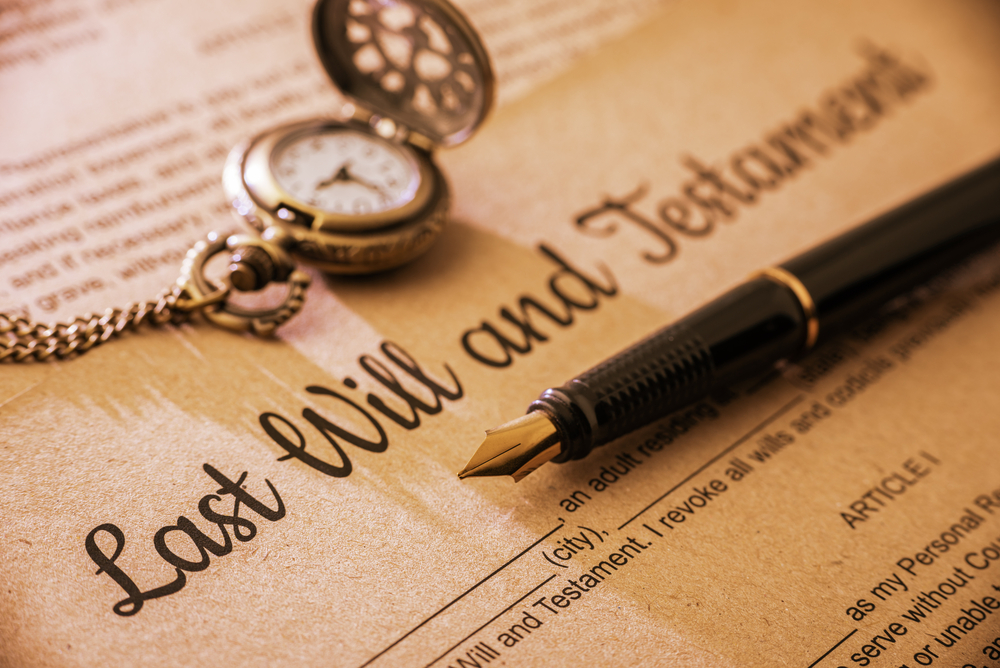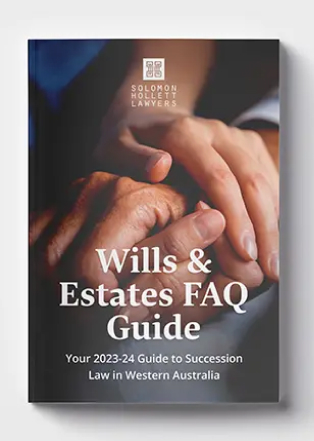When a beloved family member or partner passes away, it’s not always clear who is left with what. Even the most thorough wills and estate planning can leave room for confusion and unintended consequences. There are many reasons why someone might want to contest a Will, and we’ll get into some of them below. But can an ex husband contest a Will? Can an ex wife contest a Will?
Whether you feel like you’ve been left out of a Will, or you suspect an ex partner might contest your partner’s Will, here’s your guide to answering the question of whether it’s possible and on what grounds.
Why might someone contest a Will?
Many scenarios might result in a Will being challenged. With family structures becoming more complex with de-facto partners, fluid relationships, and shifting social norms, it’s no surprise that family estates are also becoming more complex to plan and divide up after a death. These changing circumstances also mean the reasons why someone might feel left out are more complex. Here are some of the main reasons why someone might be interested in contesting a Will:
- A family member who feels completely or partially excluded from the Will. This could be due to several reasons – personal or accidental.
- A family member might have concerns that the Will was signed in bad faith and with undue influence where the deceased was mentally unfit to make the decisions.
- Inadequacy in the distribution of the Will. For example, one beneficiary might be left with next to nothing and be in a position of genuine need.
- A Will might transfer assets directly to the younger generation and skip the direct relatives.
- Improper valuations of assets.
- Questions regarding family members living with special needs and disabilities.
Who can contest a Will?
Not just anyone can contest a Will and depending on where you live, different laws may apply. In Western Australia, The Family Provision Act (1972) details who can contest a Will. It provides that any of the following eligible persons may make an application either directly or on behalf of:
- A person who was married to, or living as a de-facto partner of the deceased person at the time of their death.
- Anyone who at the time of death was receiving, or was entitled to receive financial assistance from the deceased as their spouse or defect partner – as per a court agreement or otherwise.
- A child of the deceased living at the date of the deceased’s death.
- A child who is born within 10 months following the deceased’s death.
The Act also allows for grandchildren and stepchildren of the deceased to contest a Will if they can prove, amongst other conditions, that they were being wholly or partially maintained by the deceased.
Can my ex partner claim my future inheritance?
The short answer is maybe. The question – can an ex husband contest a Will, or can an ex wife contest a Will largely depend on the case itself and the agreements made during the relationship. The courts also deal with each claim separately and will look carefully into the merits of each case. We’ll take a closer look at how the court decides below. Courts often look at the claimant’s financial situation and whether they can support themselves. If there were pre existing agreements that provided for financial maintenance the courts will consider these.
What is the deadline to contest a Will?
If you believe a Will has been distributed unfairly and have a family provision claim, it’s good to know the deadline to act on it. Essentially, you must make a claim within the six months following the grant of probate. A grant of probate is the ‘go-ahead’ from the court stating that the Will is valid and can be distributed by the executor.
Once this initial six month period has passed, you can still make an application but you must get permission from the court before the matter is heard. The court may or may not grant you this permission. If you know you’re outside this timeframe it’s always best to consult legal experts before making any further decisions. You can find out more about how to get started here.
How does the court decide?
The court will look at every case and examine it carefully. Here are the main aspects the court will consider when deciding on how the deceased’s estate should be divided:
- When the inheritance was received. Depending on when the inheritance was received, either before, during the de-facto partnership/marriage, or after separation, the court will make judgements based on these aspects including what kind of assets were received and how they were used.
- Whether the ex spouse or de facto partner made contributions to the inheritance. If an ex partner made significant financial contributions to the inheritance in question, then it’s likely the court will consider adding such assets to the divisible asset pool.
- The nature and size of the inheritance. The value of the inheritance will also play a role in the decision making. The size in comparison to the divisible asset pool will be the main consideration as well as any financial contributions made by the ex partner.
- The relationship the ex-partner has with the deceased and the benefactor. The court will look at the relationship between the two parties as well as the intentions in the Will to inform the outcome.
How can I protect my future inheritance from divorce?
There are many different ways you can protect your inheritance from divorce. One of the most effective ways is to enter into a ‘prenuptial agreement’ and are binding financial agreements that can be made at any time and prevent any part of the inheritance from being included if you separate. Such agreements must be made with both parties’ consent and with the assistance of qualified and independent lawyers. Other methods of protecting your inheritance include updating your Will or opening up a testamentary trust to keep your assets safe.
Get legal advice today
If you want to protect your assets and those closest to you, it’s important to get the legal advice you need to make sure your efforts are as successful as possible.
Here at Solomon Hollett Lawyers, we offer expert legal advice on all matters related to Wills and Estates and stand ready to support you in making or defending a claim.
Reach out to our team and book your free 15-minute consultation today. We look forward to working with you.









